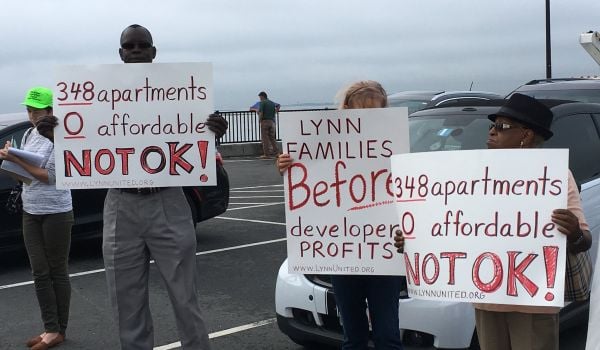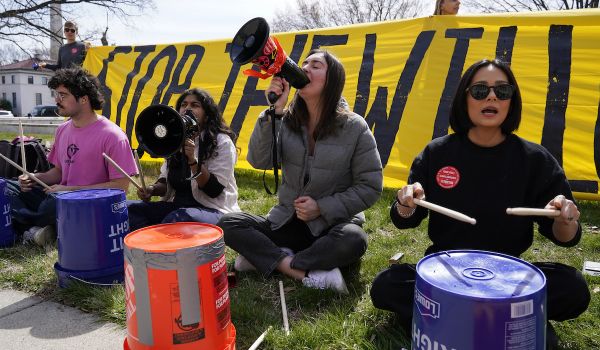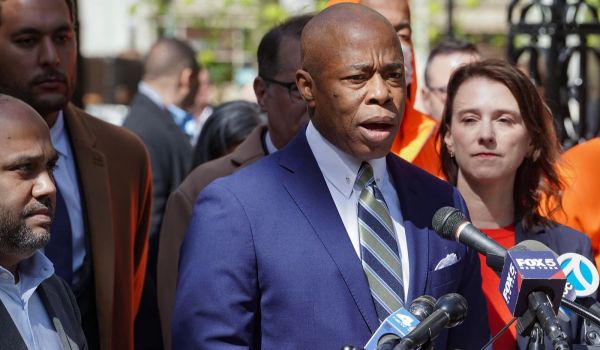The world is already investing billions and billions of dollars on infrastructure, climate resilience and sustainability. But an international coalition of mayors wants to know: Why aren’t more of those dollars invested directly in cities, which are on the front lines of both problems and solutions to all of the above?
During the UN Habitat-III Conference in Quito, Ecuador, C40, a decade-old network of more than 80 megacities around the world, gathered mayors from many of its member cities to issue a call for action on municipal infrastructure finance.
Cities are leading the way in tackling climate change, reducing greenhouse emissions and building climate resilience, says their call for action, but one of the most pressing of these barriers is the challenge of accessing finance for sustainable infrastructure projects.
And yet, The World Bank’s two main lending arms together have more than $300 billion in loans outstanding, and they’ve been growing that pool over the past few years. The Inter-American Development Bank, African Development Bank and Asian Development Banks have each been making at least $10 billion in new loans each year. The problem? The vast, vast majority of those loans go to national governments.
It makes sense, as national governments are those international development banks’ main funders and stakeholders, but international development’s biggest open secret is that the path from a development bank’s pot of money to the frontlines of urban infrastructure development is one shrouded in bureaucracy, politics and mismanagement.
The cities making this call want direct access to international development banks’ capital. They’re challenging international institutions to “develop new mechanisms to significantly increase their subnational lending and build a greater understanding of city governance structures.”
That would include supporting cities in becoming credit-worthy; earmarking large proportions of development bank lending to subnational entities and regional/municipal banks for green infrastructure; tailoring lending products specifically to meet the needs and capacity limitations of cities; increasing local currency borrowing; developing more flexible loan products; and formally involving the largest cities in the development of country assistance strategies.
UN Habitat III’s pre-Quito process, which engaged city-level discussions in coming up with recommendations and feedback, could offer some lessons on that last point.
The call for action extends to the national level. C40 is asking for support at the international level to push national governments to give cities more financial autonomy. In too many countries, the national government plans and finances while cities execute. Cities have been given more authority and responsibility, says the call to action, but not the ability to raise the finances they need to do what they’ve been told to do.
It’s not just the authority to raise more local taxes, which is part of the call to action, these mayors want more support to issue bonds. The U.S. municipal bond market is $3.8 trillion dollars. While it’s just a tiny fraction of the $40 trillion dollar U.S. bond market, and some municipal bonds can end up being quite problematic, it’s still a tremendous source of capital for U.S. cities, and other mayors want something of along the same lines, if not the same scale.
The C40 Cities Finance Facility is a new, if tiny, international $5.7 million vehicle (including $2 million from the Inter-American Development Bank) that aims to leverage another $20 million in other technical assistance to help cities learn how to properly structure and sell bonds to finance projects that can help reduce their emissions and increase their resilience to climate change. C40 thinks $20 million in technical assistance can help cities attract $1 billion in private financing from municipal bond sales.
The call to action builds on that, by challenging global policymakers at the national level to find ways to support municipal bonds through policy. One of the main reasons investors love the U.S. municipal bond market: Income from municipal bonds is 100 percent tax free.

Oscar is Next City's senior economic justice correspondent. He previously served as Next City’s editor from 2018-2019, and was a Next City Equitable Cities Fellow from 2015-2016. Since 2011, Oscar has covered community development finance, community banking, impact investing, economic development, housing and more for media outlets such as Shelterforce, B Magazine, Impact Alpha and Fast Company.
Follow Oscar .(JavaScript must be enabled to view this email address)
















